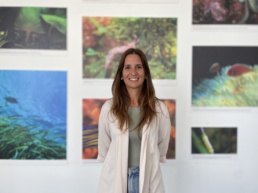In 2016, Miguel Castelo-Branco won the FLAD / Life Science Award and the merits of the work developed by the researcher resulted in an extension of the award for another year, with an extra 100,000 euros of funding. Recently, he successfully completed a clinical trial to test new therapies and says that Portugal needs to focus more on rehabilitation, not just on diagnosis.
Today is the World Autism Awareness Day and there is no better person to talk to than Miguel Castelo-Branco, Professor and Researcher at the University of Coimbra, vice-president of an association dedicated to this condition and father of a young man with autism.
Recently, Miguel Castelo-Branco completed a phase 2 clinical trial, approved by Infarmed and with the financial support of FLAD and the European Braintrain project, which by using the Functional Magnetic Resonance Imaging it allows to measure brain activity while people do tasks, recovering the information to the person so that they could change their own brain activity.
“People were exposed to their own brain activity, in areas of the brain that have to do with the recognition of emotions, so that people could increase or decrease the activity in those areas. So they could learn how to do it, we showed an image on the computer, an avatar, and we did exercises of imagination of the avatar’s emotional expression.” – Miguel Castelo-Branco
The clinical trial was developed over 8 weeks and had good results: “no one has given up, it works, people like it and are very motivated to participate in the sessions”. The people involved have learned to model their brain activity in a key area of the brain for the recognition of emotions.
Miguel Castelo-Branco: mais 100 mil euros para investigação sobre o autismo
With further work still needed to develop this technique, included in the category of neurofeedback, the researcher explained that the use of Functional MRI allows to more accurately measure the areas of the brain with a function affected by autism and that it may even be possible to do so using the electroencephalogram, which would reach even more people.
This is only one part of the work developed by Miguel Castelo-Branco’s and his colleagues in the area of autism, which has given him national and international recognition, and produced significant results, especially in the area of therapy.
And as a parent, on this World Autism Awareness Day, that’s the message he wanted to leave, especially to national decision-makers: we need to invest more in rehabilitation.
“There is a lot of investment in diagnosis, but little in rehabilitation at the public level. We need the National Health System not to give importance only to diagnosis.” – Miguel Castelo-Branco
According to the researcher, few diagnosis technicians and psychologists are hired to invest in therapy in the NHS, contrary to what happens in other countries, where there is a greater balance in the investment between diagnosis and rehabilitation.
Related Posts
17 de February, 2025
Launch of the FLAD Rui Machete Award: 200 thousand euros to distinguish paths of excellence in the Portugal-USA relationship
The Award, worth 200 thousand euros,…
14 de January, 2025
New R&D@USA Scholarship Holders 1st semester 2025
FLAD has already selected candidates…
13 de December, 2024
Vânia Baptista, from the University of Algarve, wins FLAD Science Award Atlantic 2024
The project 'Finding Home – Discovering…


